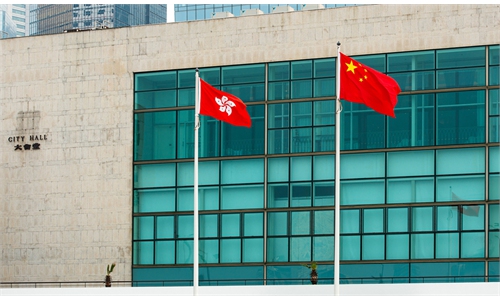IN-DEPTH / IN-DEPTH
Former LegCo chief says electoral reform brings HK back from brink of collapse as West-defined democracy turned into power of destruction
Hong Kong Solution
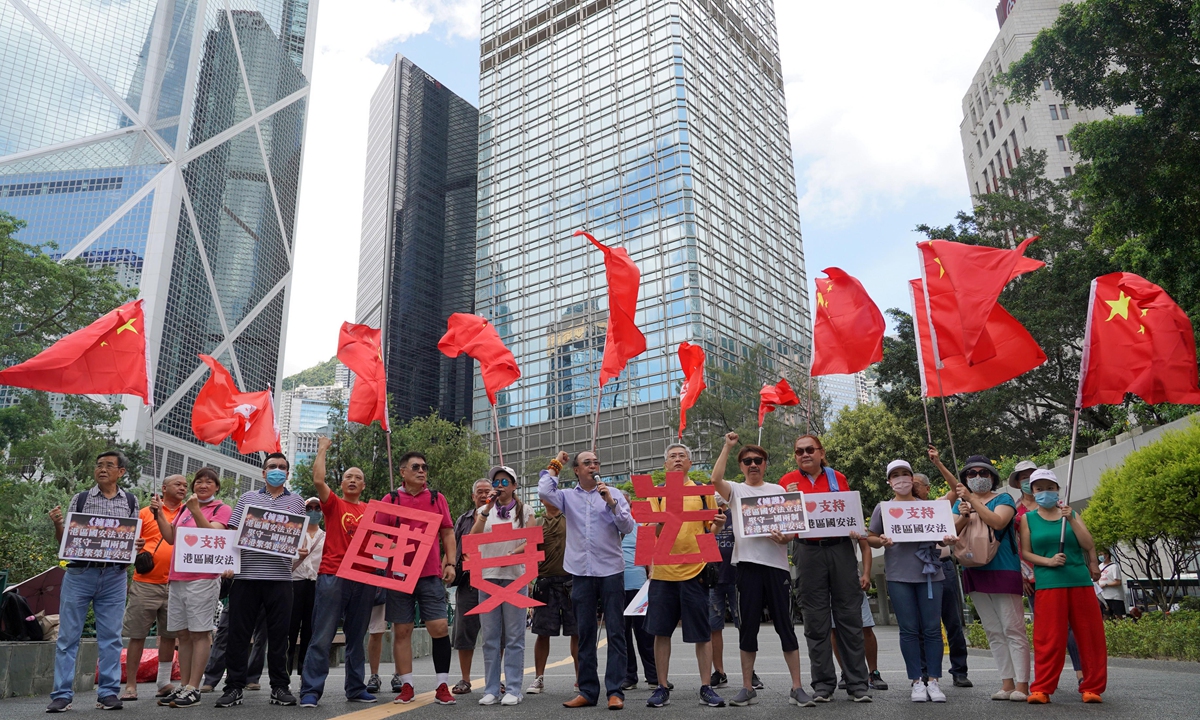
Hong Kong citizens assemble to support national security law for Hong Kong on June 28, 2020. Photo: VCG
Editors' Note:
Rita Fan Hsu Lai-tai (Fan), a former president of Legislative Council (LegCo) and former member of National People's Congress (NPC) Standing Committee, was among attendees to a seminar recently held by senior central government officials on electoral reform in Hong Kong. She was also the first LegCo president since the city returned to the motherland in 1997, who has a deep understanding of the city's democratic processes. In the latest exclusive interview with the Global Times reporters Chen Qingqing and Bai Yunyi (GT), Fan shared her thoughts on why it is necessary and urgent to implement electoral reform and what's gone wrong with the current system; why the West-led attack on Hong Kong's affairs won't waver the determination of the central government. The senior Hong Kong politician also cleared up the longstanding misunderstanding surrounding the "one country, two systems" policy.
GT: When you attended the seminar in Shenzhen last week, what were your suggestions at the seminar in terms of electoral reform for Hong Kong?
Fan: Over the past few years, the local governance in Hong Kong has not been functioning well, as you can see in the news that some from the opposition camp were opposed to everything proposed by the Hong Kong government, destroyed the government's fiscal budget plans and severely paralyzed the administration. With no respect and no professional ethical standards, those Hong Kong lawmakers were still elected through the current system, which has deviated from the initial intention of how the electoral system was formulated under the Basic Law and the "one country, two systems" policy.
What's the intended purpose for setting up the "one country, two systems" policy? We hope that residents will be able to enjoy peaceful and prosperous lives here. But the opposition camp has been conniving with the black-clad riotous mob in 2019, where some even openly advocated for "the independence of Hong Kong," refusing to admit that Hong Kong is an inseparable part of China. All those remind us of one thing: The current system has to be changed, and it needs to be a complete overhaul.
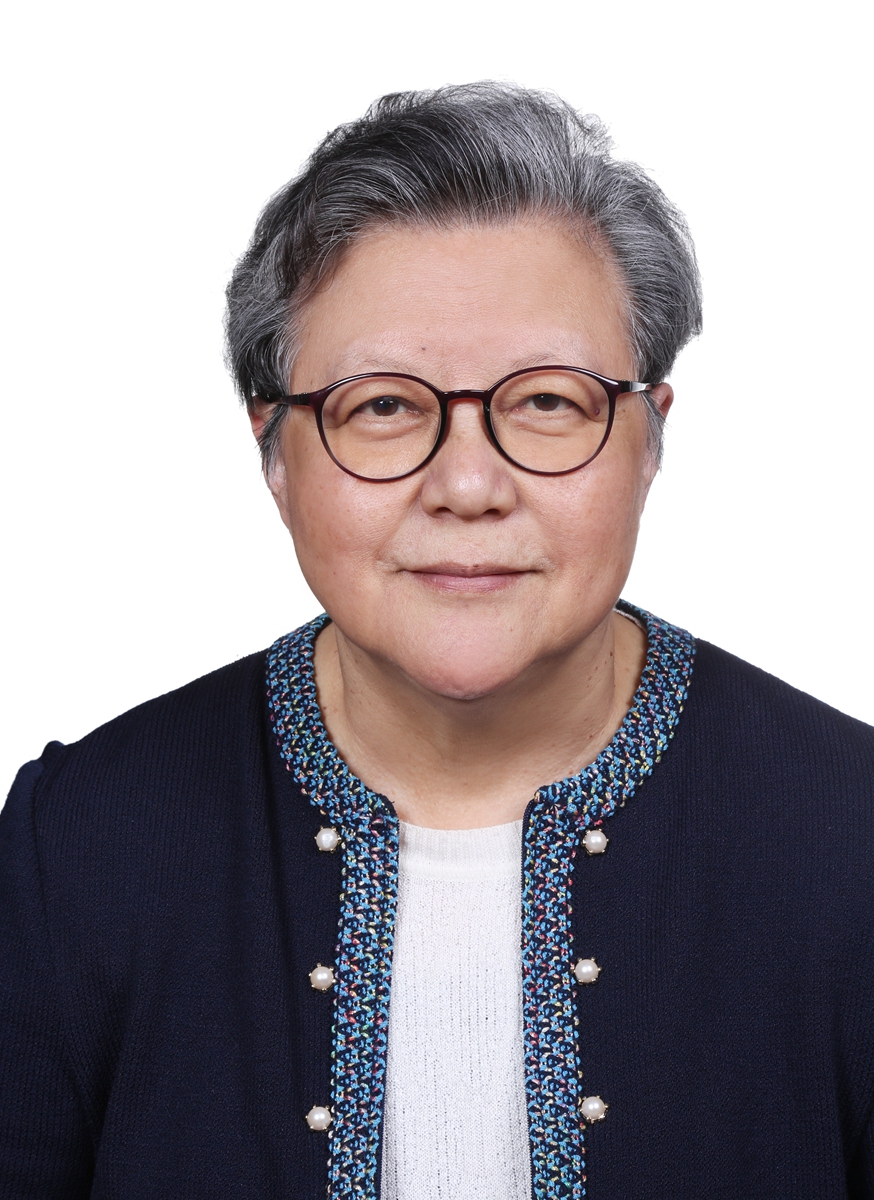
Rita Fan Hsu Lai-tai Photo: Courtesy of Rita Fan Hsu Lai-tai
GT: Why does the electoral reform have to be led by China's top legislature?
Fan: If we follow the solution previously proposed in reforming local elections, the reform requires the consent of a two-thirds majority of all the LegCo lawmakers, which seems unrealistic now given that LegCo was deferred in 2020 due to the COVID-19 pandemic and the mass resignation of pan-democratic lawmakers from LegCo. The NPC has to take action to help make these amendments.
GT: What were your suggested reform measures during the seminar with the senior official on Hong Kong affairs?
Fan: The first one was that Hong Kong should be led by the executive branch. The executive branch and the legislative branch will cooperate and balance each other. As the Executive Committee nominates both lawmakers and the chief executive, it is expected that candidates will share similar values and ideas of governance, which enables the lawmakers and the chief executive to work more cooperatively.
Given Article 97 of the Basic Law stipulates that district organizations are not organs of political power, district councils' representation in the functional constituency of LegCo and 117 district council seats at the Election Committee need to be scrapped.
GT: You mentioned recently that the "two systems" in the policy baseline "one country, two systems" refers to the economic systems, instead of the political system. Could you further elaborate on it?
Fan: When I mentioned "two systems" regarding "one country, two systems," I meant in the context of describing the high autonomy that Hong Kong enjoyed in the economic aspect, as the city is a financial hub. But according to the Basic Law, the chief executive shall be elected by a broadly representative Election Committee following this Law and appointed by the central government. You can see the ultimate authority and power of Hong Kong is not within the scope of the HKSAR government but the central government. That's the core of "two systems."
What I wanted to emphasize in terms of the "two systems" is that on the economic side, Hong Kong can enjoy free trade and other rights in business negotiations, but when it comes to the rights of political reforms, the ultimate responsibility falls on the NPC Standing Committee.
GT: How do you view Western countries' criticism on the decision to overhaul Hong Kong's reform system?
Fan: First of all, I would like to point out that Western countries, led by the US, often talk about the Hong Kong situation out of context.
Some British politicians advocated that the National Security Law for Hong Kong implemented last July violates the Sino-UK Joint Declaration. It is clearly stated in the Joint Declaration that national defense and diplomacy are the right and responsibility of China. National defense includes national security matters. How is the National Security Law for Hong Kong a violation of the declaration? Furthermore, the Joint Declaration is not an agreement, but a statement.
Let's take a look at Articles 45 and 68 of the Basic Law. The ultimate aims are the selection of the chief executive by universal suffrage upon nomination by a broadly representative nominating committee. The ultimate goal of universal suffrage has never changed and won't change. But the people of Hong Kong did not have such privileges during the period they were under British colonial rule.
When the former governor Chris Patten was in Hong Kong, the people of Hong Kong were never asked about their opinion. The city has come a long way in pursuing democratic progress, but what's happened to us now?
The progress of Hong Kong's political system is like a train moving on a track. This track is the original aspiration of the "one country, two systems" principle. It is the original intention of the Basic Law, and most importantly, the guarantee of prosperity and stability in Hong Kong.
However, we have seen that some lawmakers elected through the current system are damaging Hong Kong's prosperity and stability.
What is democracy? Democracy means that, for example, if you disagree with me, we can discuss it. If you don't like my opinion, you can walk away, but you can't beat me, you can't set me on fire, you can't throw bricks at me, right? Unfortunately, we've seen those scenarios in Hong Kong since 2019, when some radical anti-government figures disguised their ill-intentioned acts under the name of so-called democracy, freedom, and human rights with no regard for others.
We want to keep the democracy to develop, but the power of democracy is not the power of destruction.
To the groups who don't understand this and have been calling all day for democracy, I want them to sit back and think, is it worth sacrificing yourself for Western hegemony?
Hong Kong has been going forward on a wrong track, which will bring Hong Kong's prosperity and stability to the brink of collapse. This has to be stopped, with the help of the central government.
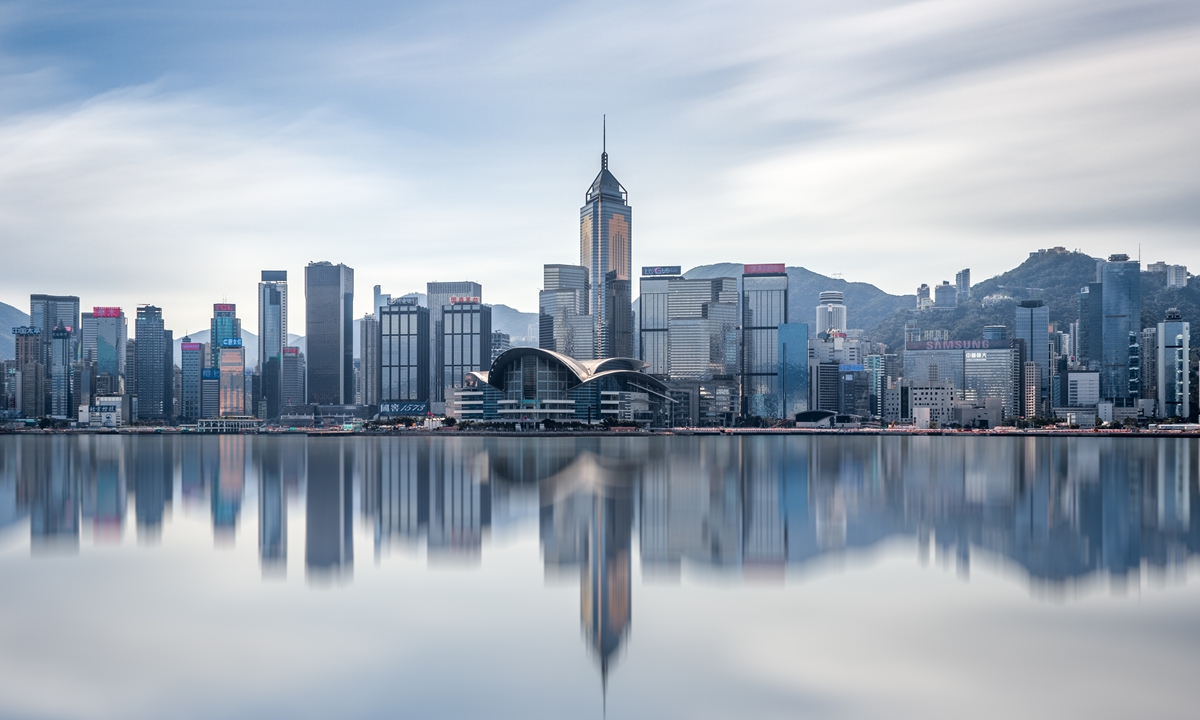
Skyscrapers in Hong Kong Photo: VCG
GT: How do you interpret the relationship between patriotism, loving Hong Kong and upholding the leadership of the Communist Party of China (CPC)?
Fan: I think if you want to criticize any political party in power, you have to have a factual basis for what they do. Your criticism is intended to make them do better. This is accepted by any country in the world.
But if you want to overthrow a ruling party that serves more than 1.4 billion people, with over 90 percent support rate from this same population, you know your criticisms are baseless. And if this party is making our lives better, making our country stronger, and making various aspects such as high-tech, education, environment protection much more advanced, why not uphold its leadership?
Being patriots who govern Hong Kong does not mean you have to love the CPC, which is not a requirement of the central government either. But the problem with the people of Hong Kong is many of them do not even know the CPC nor its achievements.
While in Hong Kong, some media outlets continued to demonize the CPC and there's a lack of education about China's history and the role of CPC in that history, which have all led to a biased view of the Party. Some radical figures advocated this anti-China and anti-CPC sentiment by instigating overthrowing its leadership. How could they overthrow such a strong and dynamic leadership that is leading the Chinese to happiness?
And they can't overthrow this Party which learns lessons from its past experiences and constantly makes improvements.
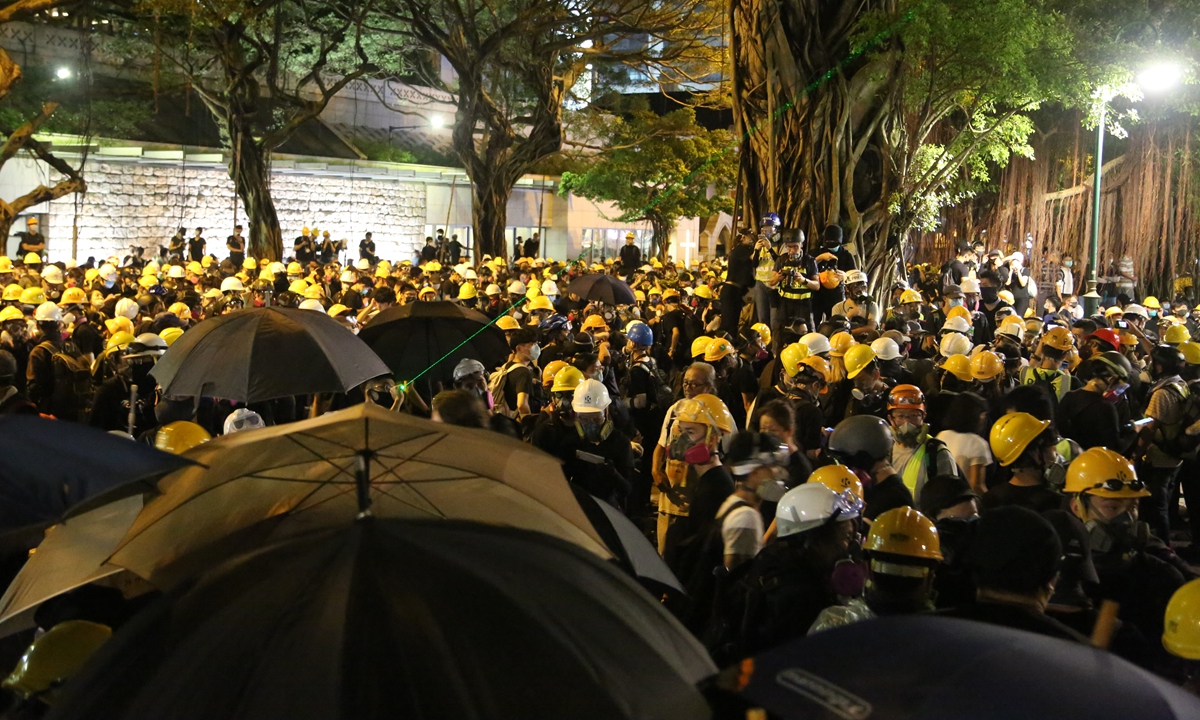
Street riot in Hong Kong on August 4, 2019. Photo: Chen Qingqing/GT
GT: Some people say the central government took action this time in fixing the problems in Hong Kong because it lost patience, lacking confidence in local governance. What's your opinion?
Fan: I think that the central government really hopes that Hong Kong could be prosperous and stable. It also wants to help Hong Kong develop and further integrate the city into the country's development plan. However, it also has a responsibility to 1.4 billion people. So, it cannot allow Hong Kong to become a loophole for the country's sovereignty, security and development interests.
First we have the national security law to fix this loophole, then there's electoral reform. In terms of mutual trust, whether pro-establishment or opposition, as long as you are patriots, you will have a chance to participate in the local governance.
I think the central government still trusts the HKSAR government.
GT: Do you think Hong Kong people trust the central government?
Fan: I think the political spectrum is likely to be: 30 percent of people do not trust the central government very much, 40 percent trust the central government very much, and the rest 30 percent are undecided. And to improve the trust, it should enhance mutual understanding. For example, explain to people about how hard the CPC has been fighting for today's achievement and how much difficulty the Party has overcome to lead the country as the world's major power today.
GT: Do you think the "one country, two systems" policy baseline would change after 25 years?
Fan: "One country, two systems" is the best political arrangement for Hong Kong. I don't think this policy baseline will change after 50 years. Hong Kong, as a Chinese city, has a unique economic system with its own advantages. The central government hopes that with our unique system, Hong Kong would remain stable and prosperous. With the implementation of the national security law and the electoral reform, the ultimate goal is to ensure the "one country, two systems" is carried on in a sustainable way.
Foreign countries won't wish the best for us, only our own country will, which is the point that Hong Kong people should understand.
I think this baseline policy won't change and there's no reason to change it.

